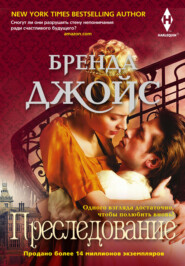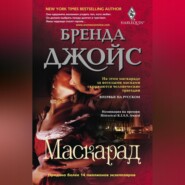По всем вопросам обращайтесь на: info@litportal.ru
(©) 2003-2025.
✖
A Dangerous Love
Настройки чтения
Размер шрифта
Высота строк
Поля
He did not know de Warenne personally—how could he? He had scorned society ever since coming into the title and the estate. From his first advent into society as a boy at Edmund’s side, they had whispered about him behind his back, and nothing had changed except that he now expected it. He preferred avoiding all social intercourse, as it was nothing but a dull pretense for everyone involved. When he did sit down to a meal with Englishmen and their wives, it was with men who were important to him—the managers of his mine, his partners in the freight company, those who wished for him to invest in other ventures.
“My lord, sir?” His butler, Hoode, paused on the library’s threshold. “You have callers.” Hoode handed him a small tray containing several cards.
Emilian was surprised. Callers were rare. His last visitor had been a widow with four sons whose family had blatantly informed him she was a good “breeder.” Now, as he took the cards, he fought to avoid cringing. As wealthy as he was, it was inevitable that marriage prospects were pressed upon him from time to time. The candidates were all excessively unmarriageable daughters. The crème de la crème were sent elsewhere to look for blue-blooded English husbands. He didn’t give a damn. He didn’t want children. Childhood was synonymous with misery and fear—and therefore he had no need of a wife, English or not.
He glanced at the cards and became still. These cards were not from families seeking marriage. One card belonged to his cousin, Robert, the others from Robert’s friends.
“This is rich,” he murmured. There was only one reason why his cousin would call, as they could not stand each other. “Send Robert in, Hoode.” He stood, stretching his tall, muscular frame. He intended to enjoy the ensuing encounter, very much the way a basset would enjoy being locked in a small room with a mouse.
Robert St Xavier appeared instantly, smiling obsequiously, hand outstretched. Blond and plump, he boomed, “Emil, my God, it is good to see you, eh?”
Emilian folded his arms across his chest, refusing any handshake. “Shall we cut to the chase, Rob?”
Robert’s smile faltered and he dropped his hand. “We are passing through,” Robert said in a jovial tone, “and I had hoped we could share a good bottle of wine. It has certainly been some time. And we are cousins!” He laughed, perhaps nervously or perhaps at the absurdity that any familial affection lay behind the claim. “We’ve taken rooms at the Buxton Inn. Will you join us?”
“How much do you want?” Emilian said coolly.
Robert’s smile vanished. “This time I vow I will pay you back.”
“Really?” He lifted a brow. Robert had inherited a fortune from his father. He had spent every penny within two years. His life was dissolute and irresponsible, to say the least. “Then it would be a first. How much, Rob, do you need this time?”
Robert hesitated. “Five hundred, perhaps?”
“And that will last for how long? Most gentlemen can live off that sum for a year.”
“It will last a year, Emil, I swear it!”
“Don’t bother swearing to me.” Emilian bent and reached for his checking book. He should let him starve. Too well, he recalled how Robert and his father had scorned him as “that Gypsy boy.” They had called him a dirty savage. But it was only gadjo money—and it was his gadjo money. He ripped the note from its pad and handed it to Robert.
“I can’t thank you enough, Emil.”
He looked at him with disdain. “Have no fear—I will never collect anything from you.”
Robert’s smile, plastered in place, never wavered. “Thank you,” he said again. “And would you mind if we spent the night here? It will save us a few pounds—”
Emilian waved at him dismissively. He didn’t care if the trio stayed, for there was plenty of room at Woodland, enough that their paths would hardly cross. He moved toward the French doors and stared past his gardens at the rolling wooded hills that etched into the gray, fading horizon. He had a terrible sense that something was about to happen…. But it must be his imagination, he thought. Still, he looked at the sky again. Not even a thunderstorm was rolling in.
He turned at the sound of new voices. Two of Robert’s equally disreputable friends had joined him, and Robert was showing them the draft. His friends were laughing and slapping him on the back, as if he had just managed some terrific feat.
“It pays to have a rich cousin, eh? Even if he is half Gypsy.” The man laughed.
“God only knows how he does it.” Robert grinned. “It’s his English blood, of course, that makes him so wealthy.”
The third man leaned close. “Have you ever had a Gypsy wench?” He leered. “They’re at Rose Hill—I heard it from a houseman.”
Emilian stiffened in surprise. There were Roma nearby. Had he sensed them all this time?
And suddenly a young Rom, no more than fifteen or sixteen years old, stepped onto his flagstone terrace, staring at him through the French doors.
Emilian moved forward. “Wait!”
The young Rom whirled and started to run.
Emilian ran after him. “Don’t go!” he cried. Then, in Roma, “Na za!”
The boy froze at the sharp command. Emilian hurried forward. Continuing to speak in the Romany language, he said, “I am Rom. I am Emilian St Xavier, son of Raiza Kadraiche.”
The boy appeared relieved. “Emilian, Stevan sent me. He must speak with you. We are not far—an hour by horse or wagon.”
Emilian was stunned. Stevan Kadraiche was his uncle, whom he had not seen in eight years. Raiza traveled with him, as did his half sister, Jaelle. But they never traveled farther south than the Borders. He could not imagine what this meant.
And then he knew. There was news—and it could not be good.
“Will you come?” the boy asked.
“I’ll come,” he said, lapsing into English. He steeled himself, but for what he did not know.
CHAPTER TWO
ARIELLA STOOD BY the fireplace, wishing she could leave the supper party and return to her room. She would much prefer curling up with her book for the evening. Pleasant greetings had been exchanged and the weather had been discussed, as had Amanda’s famous rose gardens. Dianna, who was very pretty in her evening gown, was now mentioning her mother’s upcoming ball, the first at Rose Hill in years. “I do hope you will attend, my lords,” she said sweetly.
Ariella fixed a smile on her face and glanced at her father. Tall and handsome, in his midforties, he was still a man who caught the ladies’ eyes. But he did not notice; he remained smitten with his wife, who was as passionate as her husband about the sea, and eccentric enough to stand on the quarterdeck with him even now. Yet Amanda also loved balls and dancing, which made no sense as far as Ariella was concerned. After supper, she decided she would approach her father and see if he might allow a very bold adventure into the heart of central Asia.
Lord Montgomery turned to her. “You do not seem to anticipate the Rose Hill ball.” He spoke quietly, seriously.
She could not help herself. “I do not care for balls. I avoid them whenever I can.”
Dianna rushed to her side. “Oh, that is so untrue,” she scolded.
“I prefer travel,” she added. She saw her father smile.
“I enjoy travel, too. Where have you been recently?”
“My last voyage was to Athens and Constantinople. I now wish to visit the steppes of central Asia.”
Dianna paled.
Ariella sighed. She had promised her sister to avoid any discussion of the Mongols. She debated several topics and gave in to one that interested her. “What do you think about Owen’s great experiments to help labor improve its position and place in the economy?”
Montgomery blinked. Then his gaze narrowed, as if with interest.
But the younger Montgomery stared at her in shock. Then he turned to her father and said, “An absolute disaster, of course, to consolidate labor like that. But what do you expect from a man like Robert Owens? He’s a merchant’s son.”
Ariella bristled and said to his back. “He is brilliant!”
Cliff de Warenne came to stand beside her, putting his hand on her shoulder. He said pleasantly, “I have been impressed with Owen’s experiments. I support the theory of consolidated labor interests.”
The younger Montgomery had to face Ariella with Cliff now. “Good God, and what will be next? The Ten Hours Bill? Labor will certainly argue for that!” He gave Ariella a dark look that she had received many times. It said, Ladies’opinions are not welcome.

















